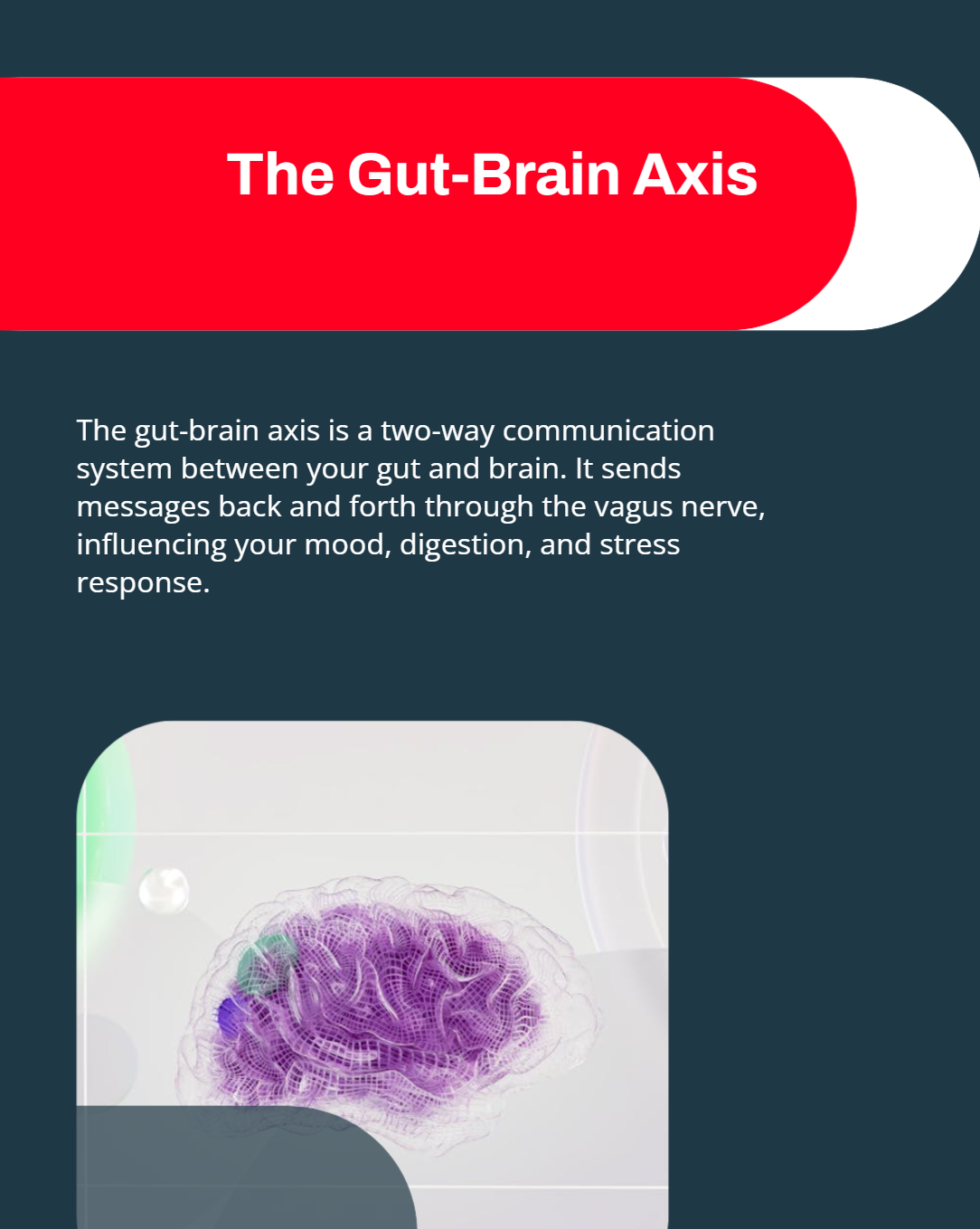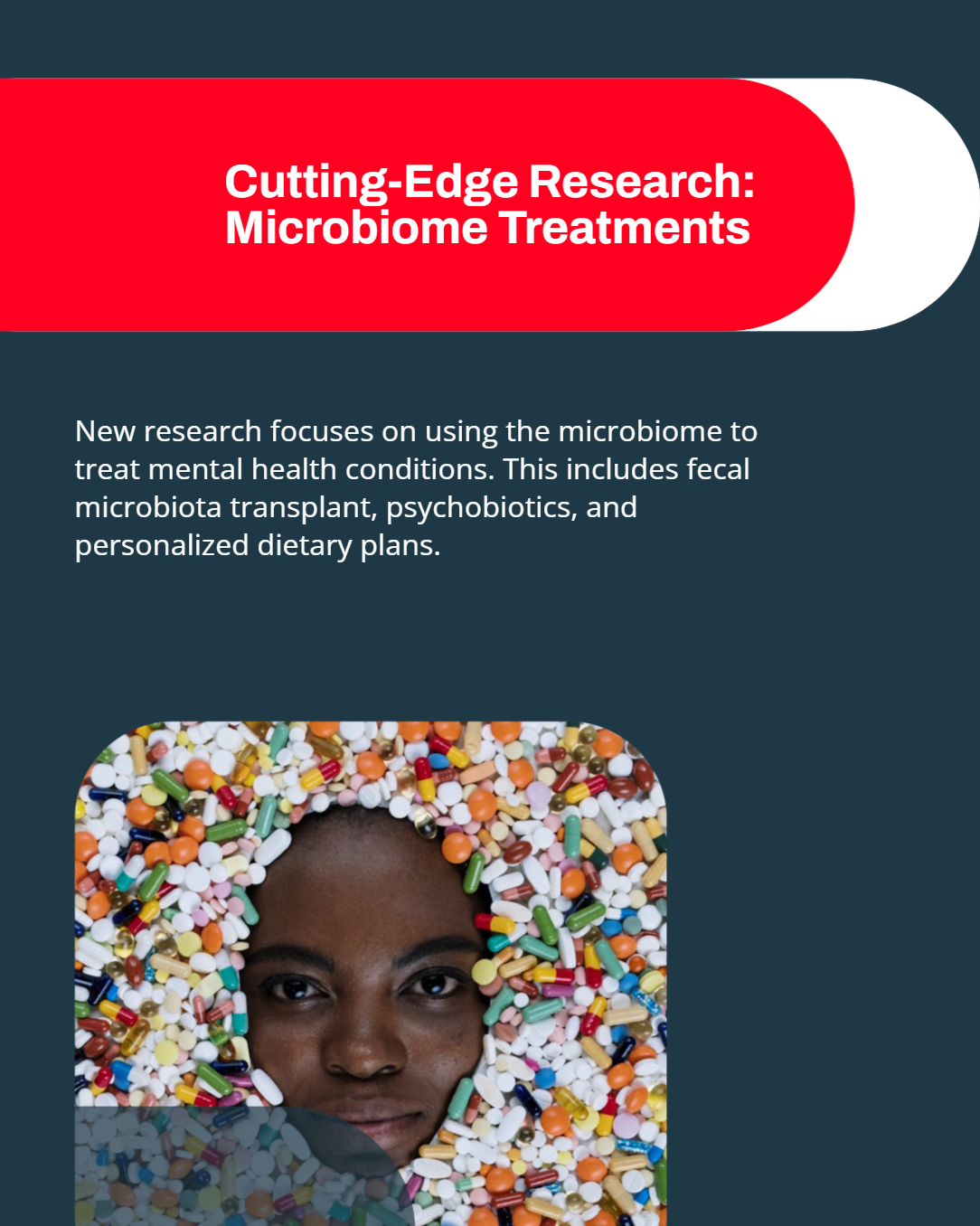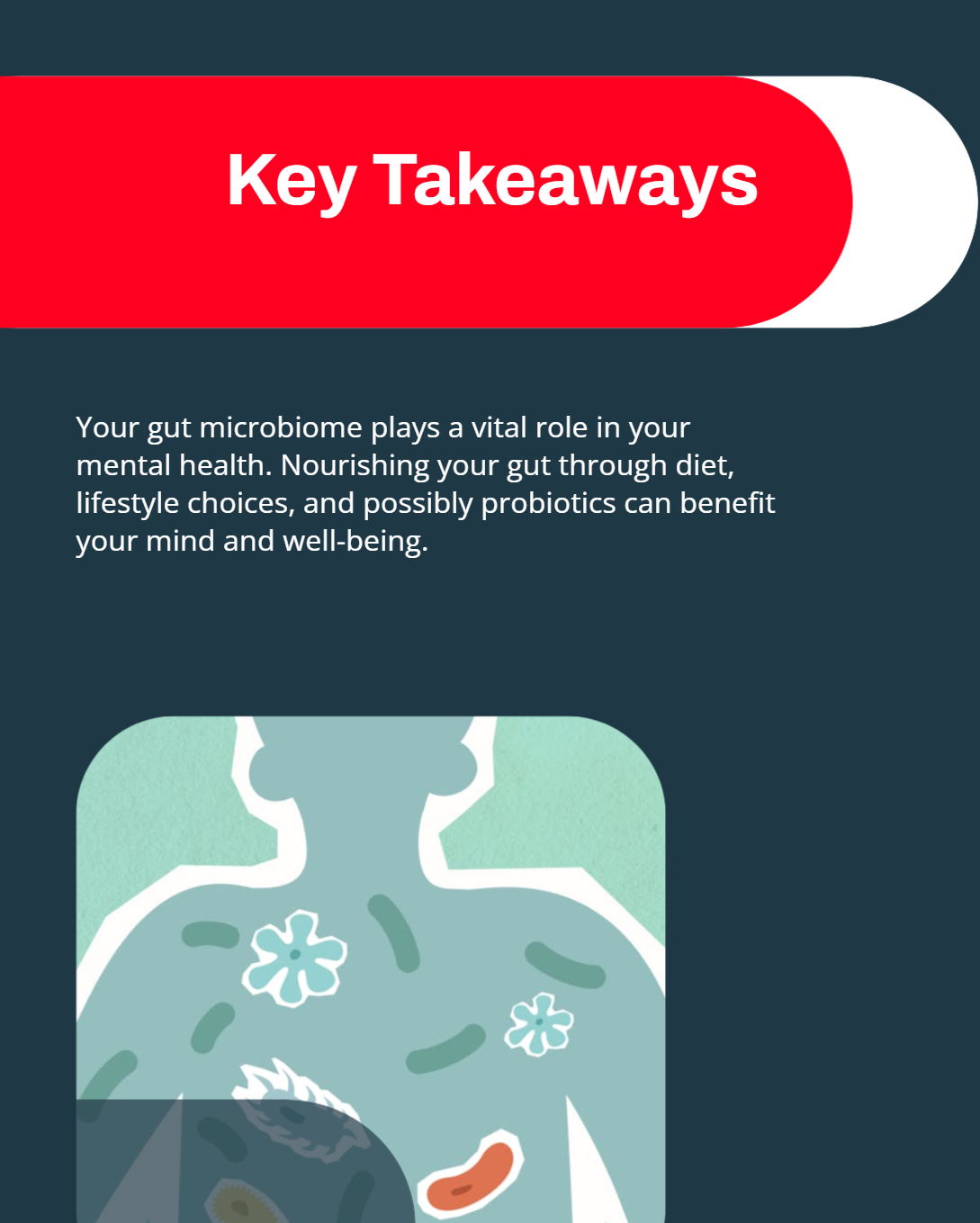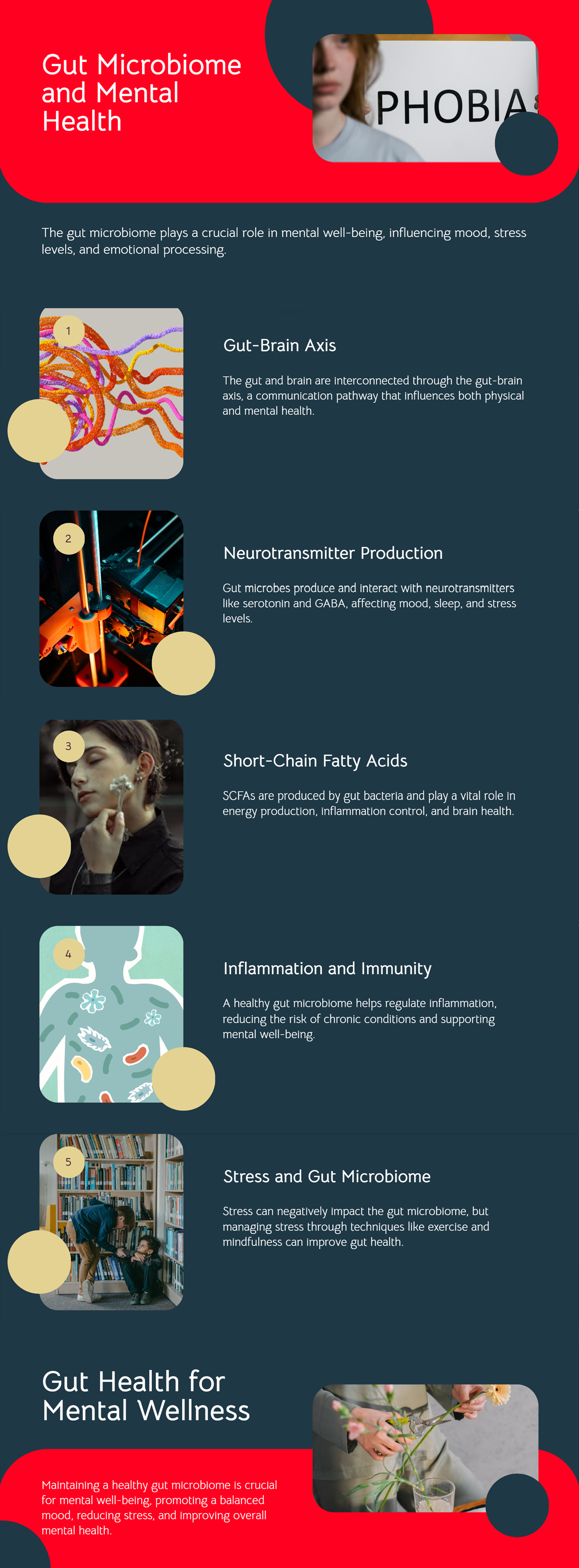The relationship between our gut microbiome and our mental well-being has gained major attention among scientists and the public alike. Many of us have heard the phrase “gut feeling,” but there is real science behind why those butterflies in our stomach can reflect our emotional state. When the delicate balance of bacteria in our gut is off, we might experience issues with our mood, stress levels, and even how we process emotions. Recent research suggests that a healthy gut may be one of the building blocks for a happier and healthier mind. Below, we explore how the gut microbiome influences mental health, examine new findings, and discuss simple steps to help keep our gut in tip-top shape.
Our gut microbiome is a bustling community of trillions of microorganisms that live in our digestive tract. These include bacteria, fungi, and even viruses. They work together and interact with our body in ways that can affect digestion, nutrient absorption, and immune responses. A balanced gut ecosystem offers numerous benefits, from aiding in the breakdown of complex nutrients to protecting us against harmful pathogens.
When our gut’s microbial balance is disturbed, problems often arise. An imbalance—sometimes called dysbiosis—can lead to digestive problems, inflammation, and a weakened immune system. However, researchers are discovering that the impact of gut health goes beyond digestion alone. Studies show that gut microbes may also influence how we feel emotionally and mentally. In other words, a thriving gut microbiome can be linked to a happier mind, while a struggling microbiome may contribute to mood and behavioral issues.

The gut and the brain are closely connected through what scientists refer to as the gut-brain axis. This system includes the vagus nerve, a vital communication pathway that helps signals travel both ways—sending messages from the gut to the brain and from the brain to the gut.
How the Brain Affects Gut Functions
When we experience stress, our brain sends out messages that can slow or speed up our gut motility, often causing discomfort like bloating or cramping. This is why we get those nervous flutters before a big presentation or feel our stomach churn during a tense moment.
How Gut Bacteria Affect Brain Chemistry
Gut bacteria produce and interact with various chemicals that can influence our mood. For example, certain gut microbes can help produce serotonin, a neurotransmitter often called the “feel-good chemical.” Serotonin helps regulate mood, appetite, and sleep. If gut bacteria fail to produce or properly regulate serotonin, it may impact our emotional balance.
The gut-brain axis shows that our mind can affect our stomach, and our stomach can affect our mind. In essence, taking care of the gut microbiome is not just about digestive wellness but also about promoting mental health.
Neurotransmitters are powerful chemicals in the body that carry messages between nerve cells. They are partly responsible for how we think, feel, and behave. Here are some examples of neurotransmitters tied to gut health and mental wellness:
Gut microbes can either help produce these neurotransmitters or guide the body to release them at the right times. When the gut microbiome is healthy, these chemicals are more likely to be balanced, supporting a stable mood and a clear mind. On the flip side, an unbalanced microbiome can disrupt neurotransmitter levels, potentially leading to mood swings, irritability, or even feelings of anxiety and depression.

Short-chain fatty acids (SCFAs) are molecules produced by the fermentation of dietary fibers in the colon. Certain gut bacteria create these compounds when they break down foods rich in fiber. SCFAs—such as acetate, propionate, and butyrate—play a big role in:
If we don’t consume enough fiber or have a microbiome that struggles to break it down, we can miss out on the potential brain-boosting benefits of these fatty acids. In fact, lower levels of butyrate-producing bacteria have been observed in individuals with depressive symptoms, suggesting a direct link between SCFAs and mental health.
A major factor in the gut microbiome’s impact on mental health is how it influences inflammation. Chronic inflammation in the body has been linked to various mental health concerns, including depression and anxiety. Gut bacteria help train our immune cells to recognize good substances from bad ones. When the gut lining is healthy, it forms a strong barrier that prevents harmful bacteria and toxins from entering the bloodstream.
However, if the gut lining is compromised—sometimes referred to as “leaky gut”—inflammation can flare up in areas it is not supposed to, including the brain. This rise in inflammation can affect neurotransmitter levels and lead to mood-related issues. Keeping the gut microbiome balanced can reduce unwanted inflammatory responses and bolster both our physical and mental health.
Stress is a powerful factor that can change the composition of gut bacteria. Cortisol, a hormone released during stressful times, can signal the body to alter gut motility and secretion of digestive enzymes. This might lead to an unbalanced microbiome if stress becomes chronic. Over time, long-standing stress can lower the diversity of gut microbes, leaving us with fewer beneficial strains.
But there’s a silver lining: simple stress-relief strategies—like deep breathing, practicing mindfulness, and regular exercise—can help restore balance to our gut ecosystem. Reduced stress often means a healthier environment for good bacteria to thrive, which can then calm the mind in return. This is a prime example of the gut-brain axis at work in a positive feedback loop.

Keeping the gut microbiome in good shape isn’t just about adding fancy supplements to our daily routine. It often starts with practical adjustments to our diet and lifestyle.
Foods That Help Good Bacteria Thrive
By feeding beneficial gut bacteria with nutrient-dense foods, we help them create positive byproducts like short-chain fatty acids, as well as encourage their growth over harmful strains.
Habits That Harm Your Gut
Healthy daily habits that include balanced meals, proper rest, and moderate exercise can bolster your gut microbiome and, in turn, support better mental health.
The market is now brimming with products claiming to boost gut health. Terms like probiotics, prebiotics, and fermented foods come up all the time. But what do these really do?
When taken properly, probiotics and prebiotics may support healthier moods. For instance, certain probiotic strains have been studied for their potential to reduce anxiety and depressive symptoms, though results are still emerging. Regardless, it seems that focusing on fermented foods and high-fiber meals offers a simple, natural way to nurture our microbiome.

As our understanding of the gut microbiome expands, scientists are starting to explore new ways to treat mental health conditions through microbiota-targeted interventions. Some of the promising areas include:
While the field of microbiome-based treatments is still young, preliminary findings suggest that adjusting gut bacteria might help manage certain mental and emotional disorders. It is an exciting area of research that continues to grow.
Not everyone’s microbiome is exactly the same. Our genes, environments, and food choices all shape which microbial strains call our gut home. This is where personalized medicine steps in. By analyzing a person’s unique gut profile, doctors and researchers can craft targeted strategies. These can range from dietary recommendations to specific probiotics that fit an individual’s microbial makeup.
Personalized approaches encourage us to see our gut as an active partner in our overall health. By tuning in to specific nutritional or supplemental needs, we can potentially reduce chronic inflammation, ease stress, and boost mental clarity. It’s a move away from one-size-fits-all solutions and a step toward more precise care.
There is still so much we do not know about the full connection between the gut microbiome and mental health. Ongoing projects are revealing new bacterial strains, novel pathways of communication, and potential treatments. With more scientific tools at their disposal, researchers can conduct larger and more detailed studies that identify exactly how gut microbes affect the brain.
We’re also seeing more interdisciplinary work as neuroscientists, microbiologists, and psychiatrists join forces to unravel the gut-brain puzzle. This collaboration means we are likely to get a clearer picture in the coming years. That knowledge could lead to breakthroughs that transform the way we treat anxiety, depression, and other mental health conditions, from prevention to recovery.

Our gut microbiome wields a remarkable influence over our mental health. From the production of key neurotransmitters to the modulation of inflammation, these tiny microbes can make a big difference in how we think and feel. New research continues to highlight the gut-brain axis’s impact on emotions, behavior, and overall wellness. By focusing on a balanced diet, stress management, and possibly incorporating probiotics or prebiotics, we can nourish our gut and, in turn, support a stronger mind. While there is still more to discover, one thing is clear: prioritizing our gut health can bring benefits that reach far beyond digestion.
While gut imbalances can affect mood, not everyone with a gut disorder experiences mental health challenges. Still, it’s wise to address gut problems quickly, as they may influence overall well-being.
Yes. A balanced gut can contribute to better immune function and mood regulation. Children can support their gut health by eating a variety of fruits, vegetables, and whole grains.
Each person’s body responds differently, but some individuals may see changes in their mood and energy levels within a few weeks of adopting a gut-friendly diet and lifestyle.
Not necessarily. Many people can improve their gut health through a balanced diet high in fiber, plenty of water, and moderate exercise. Supplements can be helpful in specific cases, but they’re not the only way to nourish your microbiome.
Physical activity helps reduce stress hormones and improve blood flow, which can aid in healthy digestion. Regular exercise has been linked to increased microbial diversity, a marker of a well-balanced gut.
 13.02.2025
13.02.2025